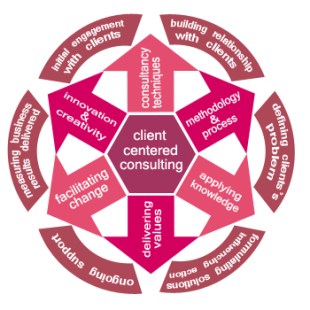Bring your own device (BYOD)
BYOD (aka BYOT), bring your own phone (BYOP | BYOPC)—refers to the policy of permitting employees to bring personally owned mobile devices (laptops, tablets, and smart phones) to their workplace, and to use those devices to access privileged company information and applications. The phenomenon is commonly referred to as IT consumerization. The term is also used to describe the same practice applied to students using personally owned devices in education settings.

There are four basic options, which allow:
- Unlimited access for personal devices.
- Access only to non-sensitive systems and data.
- Access, but with IT control over personal devices, apps and stored data.
- Access, but prevent local storage of data on personal devices.
Benefits of bring your own device (BYOD)
- Increased productivity and innovation: Employees are more comfortable with a personal device and become expert using it — making them more productive. Personal devices tend to be more cutting-edge, so the enterprise benefits from the latest features. Also users upgrade to the latest hardware more frequently.
- Employee satisfaction: Your people use the devices they have chosen and invested in — rather than what was selected by IT. 83 percent of users considered their mobile device more important than their morning cup of coffee. Allowing employees to use personal devices also helps them avoid carrying multiple devices.
- Cost savings: BYOD programs sometimes save budget by shifting costs to the user, with employees paying for mobile devices and data services. However, this often results in little to no savings, so do not base your decision primarily on anticipated savings.
Consider before adopting BYOD
- Personal cost: Some employees will be unwilling to invest their own money. As mobile devices replace company-provided laptops, certain employees will expect the organization to pay for these new devices as well.
- Enterprise cost: Will you have the resources to manage BYOD safely? Are you willing to set up a private app store for maximum control? Will your service desk be able to handle the inevitable flood of support calls?
- Enterprise control: Certain job functions require access to very sensitive data, and mobile devices are being embedded into business processes such as manufacturing, transportation and retail transactions. In these roles, IT needs complete control over the mobile devices and applications installed on them.
Why Century Longmai for your BYOD security
We’ll help you ensure secure transactions from an array of devices around the world.
Getting a better grip on mobile devices: Solutions and strategies for managing both employee-owned and enterprise-owned equipment. 
We innovative with industry leaders and accept partnership. Additional information about this product is available exclusively to Century Longmai strategic Partners. Please visit: https://longmai.net/about-us/partners/ ht to know more about our partnership Program
Read more about century Longmai
For more information regarding our services and solutions, fill out our contact form and one of our sales representatives will be in touch to discuss your digital security needs.
More Info about BYOD, you can bookmark the following extra site from industry leading companies http://blogs.cisco.com/tag/byod | http://www.ibm.com/mobilefirst/us/en/bring-your-own-device/byod.html

We innovative with industry leaders and accept partnership. Additional information about this product is available exclusively to Century Longmai strategic Partners. Please visit: https://longmai.net/about-us/partners/ ht to know more about our partnership Program
Read more about century Longmai
For more information regarding our services and solutions, fill out our contact form and one of our sales representatives will be in touch to discuss your digital security needs.
More Info about BYOD, you can bookmark the following extra site from industry leading companies http://blogs.cisco.com/tag/byod | http://www.ibm.com/mobilefirst/us/en/bring-your-own-device/byod.html
